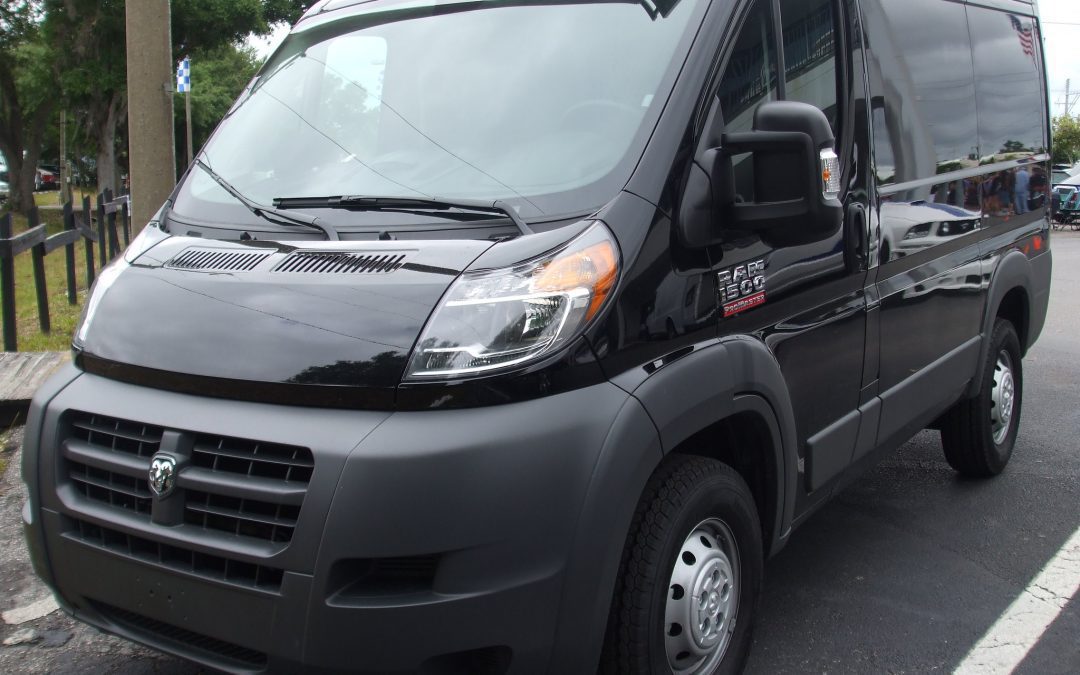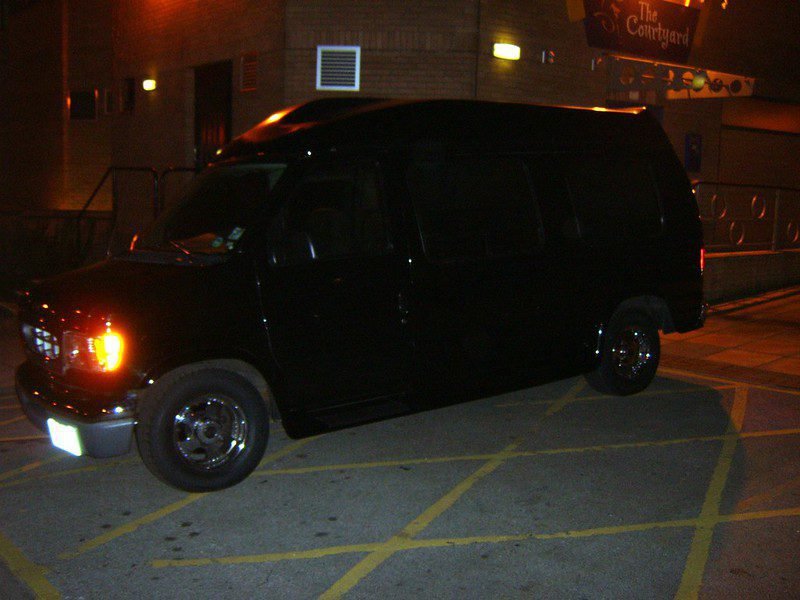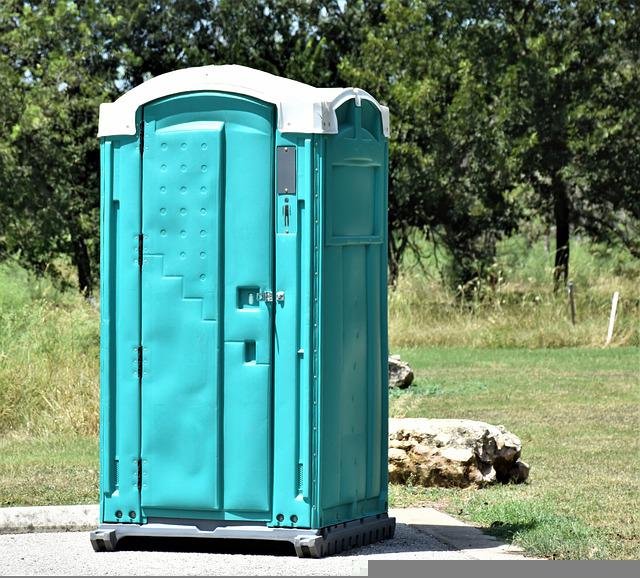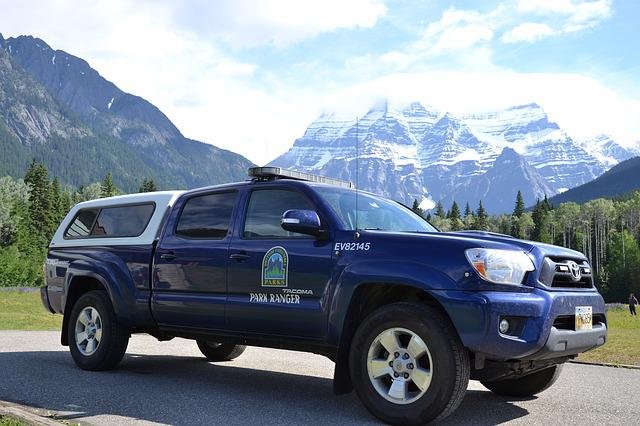Ultimate Guide to Stealth Camping
Stealth camping, or ninja camping, is like regular van or RV camping, except nobody should know you were ever there after you’ve left. The goal is to attract as little attention as possible to avoid getting spotted and told to leave.
Why do people stealth camp? One of the main reasons that people stealth camp is to avoid expensive campground/parking fees. Others stealth camp out of exhaustion after driving a long time, or to be near a special attraction when they wake in the morning.
Before you go stealth camping, it is important to be aware of the laws in the area where you will be staying. Some places have specific regulations about overnight parking, and you could get a ticket if you break the rules. It is always best to err on the side of caution and check with the local authorities before you park your van for the night.
Consider this article your one-stop shop for all things related to stealth camping, including which locations are best, how to prep your van, what to do if you’re caught, and more.
Image Credit: Neil Turner / flickr
How To Prep Your Van for Stealth Camping
When stealth camping, it is important to be respectful of the property where you are staying. This means not leaving any trash behind and not making any noise that could disturb others. If you are cooking, try to do it in a way that does not create a lot of smoke or smell. And if you are using a generator, be sure to turn it off when you are not using it.
To avoid unwanted attention when stealth camping, consider these tips on preparing your van:
- Tinting your van’s windows is a great way to add a bit of privacy and should also help keep the cabin cool in the summer. Just don’t tint them below the legal limit, or you may get stopped and given a ticket.
- Another option is to soundproof your van. Check the weatherstripping around the doors and windows, as age can cause cracks that allow more noise. You may also consider adding sound-deadening “acoustic” curtains.
- Electrical hookups aren’t usually an option for stealth campers. You can combat this by installing solar panels in your van and/or carrying extra batteries.
- Leaving your RV’s door open is another thing that may draw attention, especially if the radio is on or you’re cooking something. Installing an RV vent fan is a much more subtle alternative for keeping the cabin cool.
10 Places That Often Work For Stealth Camping
- Legal Street Parking: Street parking is usually paid for until late afternoon. So long as you show up after the paid period is finished and leave before it begins, you should be good to go.
- Hotel Parking Lots: Many hotel chains, like Best Western, Holiday Inn, or Mariott, make solid stealth camping locations. Just make sure parking is not enclosed and that a parking pass isn’t required.
- Walmart: Yes, Walmart does permit overnight RV parking. Savvy stealth campers have even given this a nickname: “Wally Dock.”
- Cabela’s: Many Cabela locations allow overnight parking. However, rules differ between stores, so you might want to inquire first. Look for trailer parking too, which suggests overnight stealth camping is allowed.
- 24-hour Businesses: Gyms, laundry mats, and casinos are just some of the 24-hour businesses that should make for a solid 12-hour stay. These places usually see lots of traffic no matter the time of day, helping you to blend in.
- Mall Parking Lots: Mall parking is ideal due to having minimal policing. They are also usually well-lit. If you’re lucky, there may even have a designated area for overnight parking, so be on the lookout for signs indicating an overnight parking space.
- Truck Stops: Most truck stops tolerate RV camping. Moreover, you’ll usually have access to bathrooms, vending machines, and even water-refill stations. Just be sure to avoid parking in designated spots reserved for passing semi-trucks.
- City Parks: Parks can be hit or miss for stealthy campers. Some communities will post signs refusing overnight parking, while others encourage it and even offer free electrical hookups and water.
- Big Box Stores: Home Depot and Lowes do allow overnight parking. However, some state laws about sleeping in vehicles may supersede this, so it’s best to call ahead and check before setting up camp.
- Church Parking Lots: Religious establishments tend to be understanding of others and will likely permit your RV if you ask permission first. As a rule of thumb, though, parking at a church without permission is now allowed.
Places To Avoid When Looking For Stealth Camping
Government Buildings
Usually, government buildings are heavily surveilled and do not allow overnight parking. You’re also far more likely to leave with a fine if you park illegally at an embassy, DMV location, or any other government building.
Privileged/Underprivileged Neighborhoods
An unknown vehicle might be seen as a threat in upper-class neighborhoods, which may lead to someone calling the cops. While you might be able to get away with camping in a lower-class neighborhood, you also up the odds of getting robbed.
Airport Parking Lots
Other than the fact that airports are loud throughout the night, they also require a parking pass for anyone hoping to stay any amount of time. In terms of places to avoid when stealth camping, airport parking lots aren’t a reliable option.
Change Locations Frequently
While you shouldn’t have too much problem finding a place for a night, the last thing you want to do is overstay your welcome and get banned from future visits. For this reason, changing locations frequently is your best bet.
In general, if you can find 10 or so places in the area that let you stay overnight, and rotate between them, you should be set for a longer-term stay. Just be sure to clean up after yourself when leaving so you can keep the location on the list.
Image Credit: Ray_Shrewsberry / Pixabay
How To Find Bathrooms & Showers Stealth Camping In The City
-
- Truck Stop Facilities: While you won’t typically find a truck stop inside a city, they are often found in the outskirts. Truck stops are not only friendly to respectful overnight RV parkers, but they also tend to offer public bathrooms and showers.
- Add A Portable Toilet: If your RV doesn’t have a toilet, you may consider adding a portable one. Portable toilets are simple to set up/dismantle and typically start under $50. You can also bring a few “Waste Alleviation and Gelling” (WAG) bags as a last resort.
- Gas Station Bathrooms: Sure, gas stations don’t usually have the cleanest bathrooms, but if you’re in a pinch, they do serve their purpose. For the best experience, check out this 2019 report by GasBuddy, which details which gas stations have the cleanest bathrooms in each state.
- Body Wipes/Dry Shampoo: There are several personal hygiene products to consider when stealth camping, including body wipes and dry shampoo. If you haven’t heard of dry shampoo, it’s a powder that absorbs dirt, oil, and grease from your scalp without needing water.
- Public Beach Showers: Many beaches offer public showers for people to rinse off salt and sand. While the water is usually cold, and you’ll likely be out in the open, beach showers do make a reliable option for stealth campers needing a wash.
- Fast Food Chains: There’s almost always a Chick-Filet, Starbucks, or McDonald’s nearby. These fast-food chains have the best bathrooms, per Business Insider. If the lights are on, you can walk right in.
How To Cook Food When You’re Stealth Camping
Avoid Cooking Smelly Foods
For carnivores, there’s not much better than the smell of a sizzling T-bone or drumstick over a hot flame. Yes, BBQs go together with camping, but they also give off an aroma that can draw crowds.
Consider shelf-stable foods like canned tuna, protein bars, and peanut butter as protein-rich alternatives.
Consider Opening a Window
Cooking food when stealth camping in a van or RV does have its hazards (i.e., small spaces, open flames, poor ventilation). Before cooking, consider cracking a window or opening a vent.
You should also check that the kitchen is uncluttered to avoid a potential fire, as a van engulfed in flames isn’t exactly stealthy.
Keep Recipes Simple
The last thing you want is to have to hastily pack and leave when in the middle of cooking a complicated meal with many ingredients. Instead, keep recipes simple so that you can quickly put things away, move to a new location, and then finish preparing your meal.
For a few simple (and tasty) meals to cook when stealth camping, check out these recipes from Harvest Hosts.
Image Credit: DrFrank / Pixabay
What To Do If Someone Knocks
Getting an occasional knock on the door comes with the territory when stealth camping. You may encounter security guards or police officers requesting you leave the premises. The reaction varies – in some states, you’ll receive an instant ticket, while in others, they’ll simply ask you to relocate.
If law enforcement knocks, opening the door and politely cooperating is strongly advised. Arguing or resisting will only escalate the situation. Simply say “I understand, I’ll be moving along shortly.” Avoid confrontation and move your vehicle promptly.
If the late-night knock isn’t from an officer, cautiously communicate through a cracked window without opening the door fully. This protects your safety if the person has ill intent.
Finally, note locations where you’re asked to move on a map to avoid returning. An officer may let you off with a warning the first time but issue a citation if you continue camping there. Maintaining positive relations with local authorities helps enable ongoing stealth camping.
Plan Your Escape Route When Stealth Camping
There are a lot of things that can go wrong when stealth camping, like getting told to leave at 2am, having a bear show up to nibble on your tires, or getting harassed by an aggressive stranger.
For these reasons and more, your best bet is to prepare an escape route ahead of time so you can speed off in a hurry.
First, consider where you’ll go. Police stations, 24/7 businesses, or even just the nearest highway are all more secure than a secluded campsite.
If you’re camped somewhere without cell coverage, a health scare can be disastrous. For this reason, try to keep track of coverage quality before going too far into the wild, as you may have to return to a hotspot in a hurry.
To avoid stumbling, you should always keep the path to the driver’s seat is clear. Moreover, knowing where the ignition key is at all times will ensure you don’t waste time. Consider designating a place to store the keys that’s close to the steering wheel.
Stealth Camping in The Wilderness
Wild camping is essentially setting up camp in an undeveloped wilderness site. Camping in the wilderness is inherently sneaky, making it a perfect option for confident stealth campers.
Of course, there are downsides to wild camping, like not having electrical hookups, cell coverage, or toilets. There’s also the possibility you encounter some larger wildlife, like a coyote or even a bear.
When done right, stealth camping in the wilderness can be an extremely rewarding experience. To ensure your trip is a success, check out the wilderness stealth camping tips below.
Wilderness Stealth Camping Tips
-
-
-
-
-
-
- Don’t Get Lost: You do not want to get lost when wild camping. For this reason, keep track of where you’re headed, notating any landmarks or signs along the way. If directions are not your forte, you can pick up one of the best handheld GPS devices for just $300.
- Leave No Trace Behind: With the goal of stealth camping being to go unnoticed, you surely don’t want to leave behind a mess. Building a fire pit is fine, but leaving trash is not only bad for aesthetics but can harm wildlife as well.
- Wear Bright Colors: No, bright-colored clothing is not ninja, but doing so does tell hunters you aren’t a target. According to the International Hunter Education Association, between 700 to 1,000 people are accidentally shot each year by hunters. Wearing bright colors may be what keeps you out of this statistic.
- Pick A Safe Campsite: Before picking a site to camp, give the area good once-over, scanning for potential hazards like landslides, flooding, and predatory animal droppings. While you can’t prepare for every occasion, you can minimize the chances of a dangerous situation occurring.
- Be Cautious of Bears: Encountering a wild animal is possible when wild camping. Bears, black or brown, are the biggest threat. If you aren’t sure of how to handle a bear encounter, you may want to brush up on best practices, like staying calm, not running away, etc.
-
-
-
-
-
Resources
-
-
-
- Leave No Trace Center for Outdoor Ethics: https://lnt.org/ This organization focuses on promoting responsible outdoor recreation through education and research, which can help your readers understand the importance of leaving no trace while stealth camping.
- Roadtrippers: https://roadtrippers.com/ Roadtrippers is a popular trip planning platform that offers information on a variety of camping and RV-related topics, including stealth camping tips and finding good locations for overnight stays.
- Harvest Hosts: https://harvesthosts.com/ Harvest Hosts is a membership program for RVers that offers unique camping experiences at participating wineries, farms, and attractions across the United States. They also provide helpful camping tips and resources.
- Campendium: https://www.campendium.com/ Campendium is a comprehensive resource for campers, including reviews, photos, and information on campsites, RV parks, and free camping locations. It’s an excellent reference for finding suitable stealth camping spots.
- REI Co-op Expert Advice: https://www.rei.com/learn/expert-advice REI offers expert advice and guidance on a variety of outdoor activities, including camping and RVing. Their website features informative articles and resources that can provide valuable insights for stealth campers.
-
-
Final Thoughts on Stealth Camping
Not everyone enjoys stealth camping, but those that do usually swear by it. If you don’t mind having to occasionally relocate at 2am, and you keep the TV volume low, stealth camping can be extremely rewarding.
In general, if you are respectful to those around you and clean up after yourself when you leave, you shouldn’t have too many issues. What’s more, thanks to the plethora of available apps and websites, finding a place to stealth camp, and researching the location, is easier than ever.
Featured Image Credit: Michel Curi / flickr




